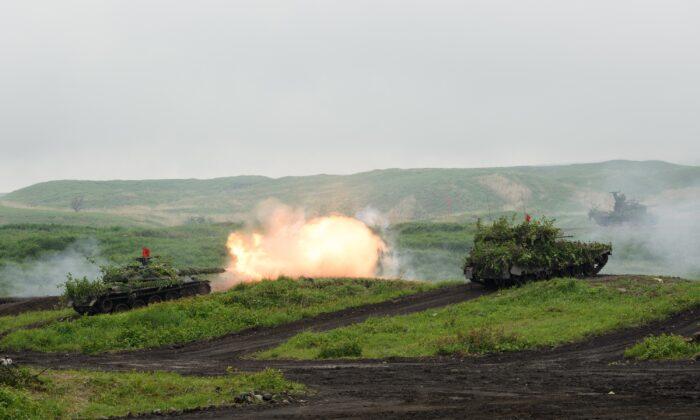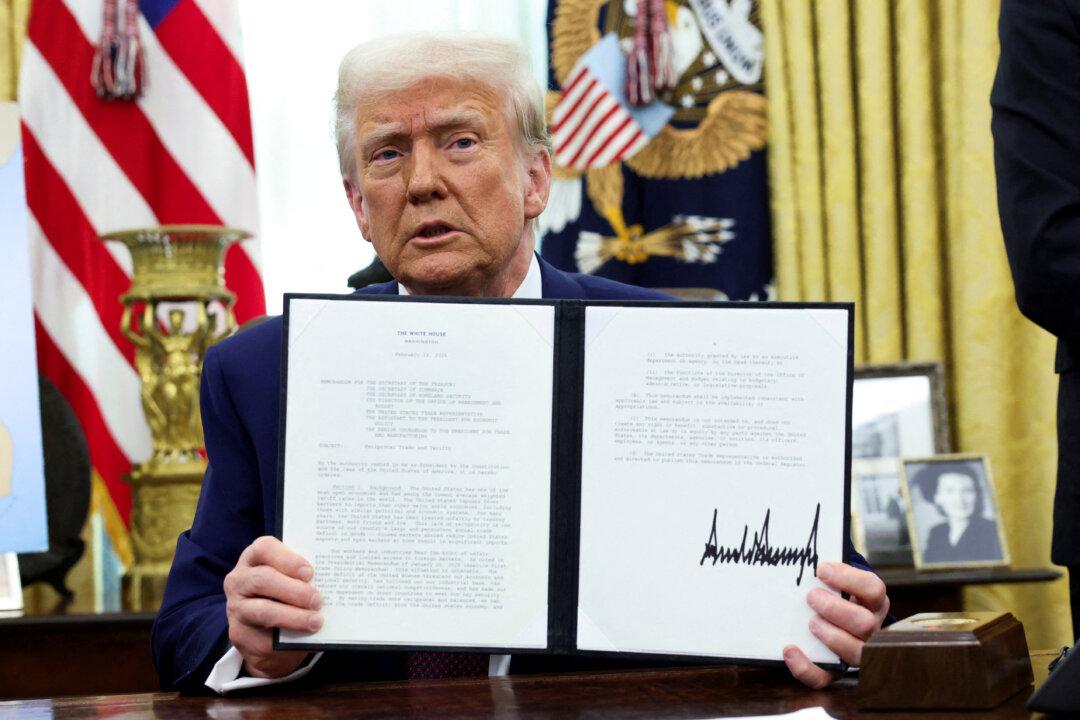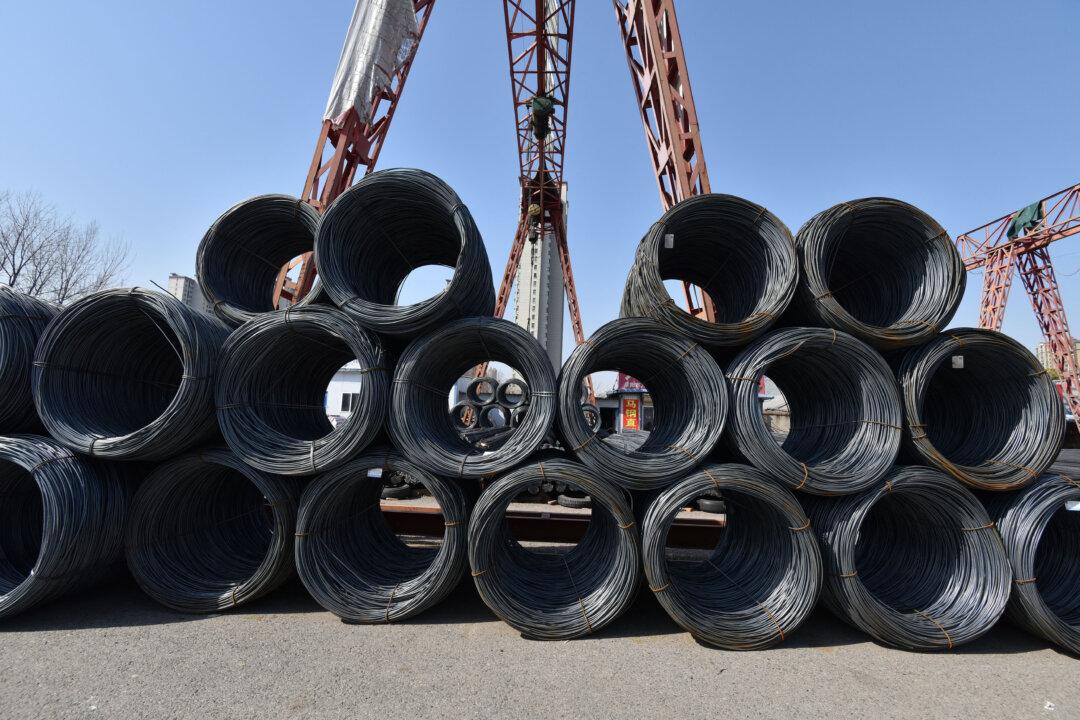The United States supports Japan’s tougher strategy.
The U.S. Ambassador to Japan, Rahm Emanuel, responded, “The Prime Minister is making a clear, unambiguous strategic statement about Japan’s role as a security provider in the Indo-Pacific.”
The Japanese military is investing in new counterstrike missiles, including a surface-to-ship missile developed by Mitsubishi, purchases of U.S. Tomahawk cruise missiles, and the ability to coordinate with the United States in long-range delivery of ordnance to Chinese military bases.
Tokyo’s new plan will develop capabilities over the coming decade “to disrupt and defeat invasions against its nation much earlier and at a further distance.”
The strategy, a welcome departure from its outdated pacifist constitution of 1947, rightly calls China its “greatest strategic challenge.”
Japan is a democracy now and must leave its imperial guilt in the past and realize that it is one of the most important countries in ensuring peace in Asia by counterbalancing the world’s most dangerous dictatorship.
Tokyo’s strategy evolved from closely observing Russia’s invasion of Ukraine. Moscow proved that a dictatorship could be crazy enough to invade a neighbor in the 21st century, and that asymmetric weaponry as small as shoulder-fired anti-tank Javelin missiles could make the difference in blunting aggression.
“Each and every one of us must have the awareness that we are protecting our country,” said Prime Minister Fumio Kishida at a press conference on Dec. 16.

Japan must take into account both the differences and similarities of the Ukraine war to its own security challenges. China is much more powerful than Russia economically, diplomatically, and in terms of conventional weaponry and the industrial capacity to replace that weaponry in the middle of a war. China’s supply chain is likely the best in the world, though much of its technology is behind that of the United States and Europe.
North Korea is often ignored in superpower politics but is actually a strategic wild card. It is possible, for example, that Moscow or Beijing could use a nuclear-armed Pyongyang for a suicidal proxy war against Japan and the United States, thus maintaining plausible deniability and escaping U.S. and Japanese deterrence.
Beijing has demonstrated its ability to contemplate such aggression, including through joint nuclear-capable bomber flights with Russia over the Sea of Japan and the East China Sea, most recently in November. The military testing of Japan’s air and sea boundaries is highly aggressive and forces Tokyo to scramble fighter jets and naval resources. In August, China’s People’s Liberation Army (PLA) went so far as to fire missiles into Japan’s exclusive economic zone.
The Chinese regime seeks to conquer Taiwan through kinetic or non-kinetic action, which would put Japan’s sea lanes and southernmost islands at risk. Along with the South China Sea and South Korea, Japan is a potential next target, after Taiwan, for an expanding China.

Japan and its allies—including Australia, Taiwan, and South Korea—need to increase their military spending, stop empowering China’s economy, and focus on defending their territories and markets. Australia and South Korea should follow Japan’s lead in increasing their defense budgets to 2 percent. Taiwan is at 2.4 percent and should increase to that of the United States, at 3.3 percent.
Weakness encourages hardliners in Beijing and Moscow to attempt catastrophic wars of aggression. U.S. allies should not expect full protection from the United States unless they pull their weight by defending themselves first.
Japan and its allies should also study the effects of Ukraine’s nuclear inferiority to Russia. That allowed Russia to invade without fear of nuclear retaliation and the war spreading to Russian territory, something that Russian President Vladimir Putin observed publicly as a strategic bonus.
While Ukraine is heroically defending much of its country with conventional weaponry, it has lost Crimea, much of the Donbass, and large swathes of its south that provide a land corridor to the Sevastopol naval base.
That hurts deterrence against Moscow, whose disastrous attack on Ukraine demonstrates that nuclear-armed dictators can act with impunity. Beijing must be contained with tougher deterrence than that available to Ukraine, and the United States should stop clipping the wings of its democratic allies.
While containment enrages the CCP, it must be maintained until Beijing democratizes the country or, at a minimum, demonstrates its peaceful intentions. Evidence to that effect should include welcoming the independence of a democratic Taiwan, removal of Chinese military bases from the South China Sea, an end to Beijing’s genocidal policies, including against Uyghurs and the Falun Gong, and some lasting agreement with India and Bhutan over border disputes in the Himalayas.
Only when the CCP ends its aggression and human rights abuse should the United States, Japan, and allies end policies that are rightly trending toward military containment and economic decoupling.





